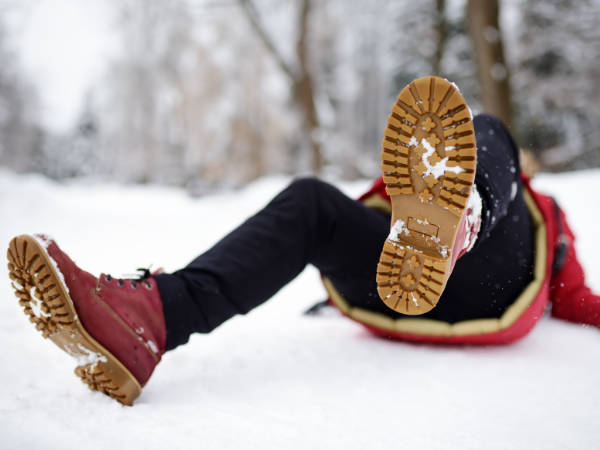Prioritizing Fall Prevention
As temperatures drop across the country and contribute to icy conditions, more people are at risk of falling and, in many cases, seriously injuring themselves.
Falls on ice are the top cause of sport and winter injury hospitalizations in Canada, according to the Canadian Institute for Health Information. The latest data shows that 8,532 people slipped on ice between 2017 and 2018. This is more than double that of cycling, the second most common cause of sport and winter injury hospitalizations.
“It’s a major health care challenge, particularly for older adults because nine out of 10 hip fractures result from falls and can cause serious complications,” said Dr. Linda Li, a senior scientist at Arthritis Research Canada.
How can we change this?

There is strong evidence that the Otago Exercise Program – involving strength and balance training delivered by a physical therapist – can reduce falls in adults over age 65. Yet, only one in four people continue with the program over time.
“The Otago Exercise Program helps people strengthen leg muscles, focus on balance training and regular walking to reduce the risk of falls,” Li said. “Physical activity has the added benefit of reducing pain and improving mobility, especially in people with arthritis.”
Traditionally, the Otago Exercise Program is delivered by a physical therapist who prescribes the exercises in the patient’s home. Although the prescriptions are tailored and specific, there is no standardized method to motivate patients to exercise.
Li and her team have redesigned how to deliver the Otago Exercise Program with the use of a mobile app and personalized coaching. They will provide standardized training for physical therapists to use this delivery method. Therapists will then deliver the program to older adult patients who are at risk of falling.
The team is now testing whether this new method improves patients’ participation in the exercise program, as well as their health outcomes over a two-year period.
Stay Safe this Winter
People with arthritis can prevent falls by staying fit and taking precautions before venturing out in the ice and snow. “Building and maintaining muscle strength and balance is a key element in fall prevention,” Li said. Older adults with mobility issues, in particular, might consider the following tips to avoid injury and build strength during the colder months:
- Choose proper footwear
- Walk indoors during icy conditions
- Get your steps in: go for a walk at least three times per week
- Walk slowly and take small steps
- Keep your hands out of your pockets
- Go out with a friend or family member when possible
- Use mobility aids and walking poles with non-slip tips


























































